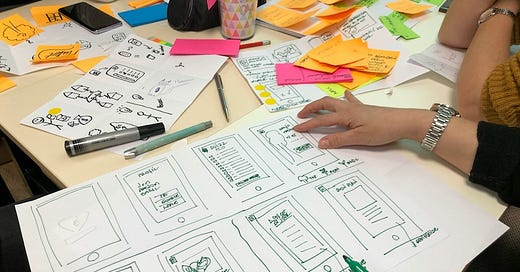Programmer’s log. Epoch time 1748793154. We’ve been in London for only a month and we’ve already had my parents and two sets of friends come visit! It has definitely made the transition a lot easier and now we’re starting to settle into day-to-day life here. The biggest achievement is that we locked down a long-term let for the next two years, so we can finally start collecting all the creature comforts that makes a place feel like home…
This essay has been something I’ve been thinking about for a while now. The constant stream of AI progress has created a veritable renaissance in technical writing across the blogosphere. There’s a pretty wide range of differing opinions, and the dialogue has inspired a lot of introspection on my own usage of LLMs and how I think it’s going to change the tech industry.
This is my own contribution to the discussion. I’d love to hear what you agree & disagree with!
GenAI is not a silver bullet
How LLMs won't fix software engineering
As someone who works in tech, you can barely go a full day without getting confronted with debates about how generative AI is going to affect the industry. The predictions vary wildly in terms of the expected scope and impact, with arguments constantly shifting and evolving with every new release as the frontier labs duke it out for market dominance.
One one side, you have the extreme and dire warnings about AI upending the entire practice of building software. Engineers are obsolete, the sky-high compensation will vanish, and everyone who remains will be some kind of business-technical hybrid that solely exists to dictate product specifications to the code-writing computers.
On the other side are folks dismissing AI as overhyped and underwhelming. Sure, these coding assistants may be enabling a new generation of vibe coders to spit out instantaneous vaporware full of security holes and spaghetti code, but there is little in the way of production-level code that can be released without humans handholding the AI the entire way.
The answer, like most other technological innovations, will be somewhere in between. While it is dramatic to imagine total upheaval or a total no-op, the middle path is not exciting to talk about. I believe the industry will change in some very significant ways in terms of how we organize and build software, but largely the practice of software engineering for skilled programmers will be the same. After all, tools of our trade are constantly being built and rebuilt by ourselves and our compatriots in the first place. It will take a long time, maybe a decade or more, for generative AI to become “normal technology” inside tech companies alone.
I’m fairly confident in the boring middle-of-the-road outcome here. I’ve been working in industry long enough to see several boom-bust hype cycles. Founders and tech luminaries repeatedly overpromise and underdeliver on products in the five-to-ten-year time horizon. Just see self-driving cars, the gig economy, and cryptocurrency.
Even the release of the smartphone, and the corresponding monumental shift towards mobile development, took 20 years to go mainstream with public consumers. Even after Apple released the App Store in 2007, it took at least a decade for mobile programmers to get trained up into the industry (anyone else remember so-lo-mo?). Best practices continue to change. Arguably, the “right way” to do software development on mobile is still being disputed, with changes in accepted technologies and redistribution of engineering staffing constantly happening.
...
(Click here to read more)
📖 Links and books
Recent writing and websites I really enjoyed:
There’s no free lunch at Apple (Spyglass)
AI as normal technology (AI Snake Oil)
Page pacing by David Moldawer
Apple Rankings: a definitive list of good and bad apples
Evading categorization (crystal clear)
Meet Mindy Seu (Passerby Magazine)
The life of actress and inventor Hedy Lamarr (Wikipedia)
I just finished the entire series of Dungeon Crawler Carl by Matt Dinniman which was an absolutely delightful binge-read! I also listened to Abundance by Ezra Klein and Derek Thompson on audiobook.
That’s all for now! See you later alligator 🐊




